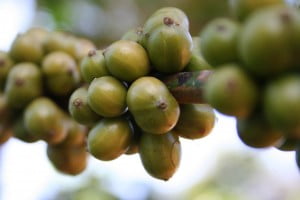Coffee Pricing Review

Coffee Prices Hit Two-Year High as Drought Continues over Central Brazil
At Coffee Mill we are always on top of what is happening with the coffee market…it is our business. Brazil is usually the driver for coffee pricing and what happens there has a strong effect on all of the other coffee producers. Here is a a great article on the drought and the impact it could / will have on the 2015 market.
From: http://www.agrimoney.com/news/brazil-dryness-sends-coffee-futures-to-2-year-high–7564.html

The ongoing drought in the Brazilian Coffee Belt is the driving force behind the rise in coffee prices. Arabica coffee for December hit 225.50 cents a pound in New York, the highest for a spot contract since early 2012. Further, recent data shows hedge funds raising by more than 4,000 contracts, to back above 39,000 lots, their net long in New York arabica futures and options in the last week of September.
The market conditions follow a continuing dry weather forecast for Brazil’s coffee belt during a time in which the trees delicate pollination process is to occur. The problem is that adequate moisture must be present for the proper flowering that establishes the key developmental process for cherries for the 2015 coffee harvest. Coffee farmers anxiously await the rains and…
…the bad news gets worse.
The rains are most likely not going to visit upon the land to relieve the area’s dry spell, thus sealing the prediction that future coffee output in Brazil will mostly likely decline. Besides curtailing production this year, possibly costing the country more than 10 million bags in output, the drought has already hurt potential growth of new vegetation needed to successfully bear the flowers currently in blossom.
On the flip side…
There was some recovery in the real against the dollar, after the first round of Brazil’s presidential election results that showed a surprisingly strong showing by opposition party candidate Aécio Neves, viewed as the pro-business choice. But who knows what will happen now that Dilma Rousseff has been elected for a second term. Rousseff is blamed by many for the stagnation in Brazil’s economy.
Looks like, until it rains down in Brazil, the coffee market will remain volatile.